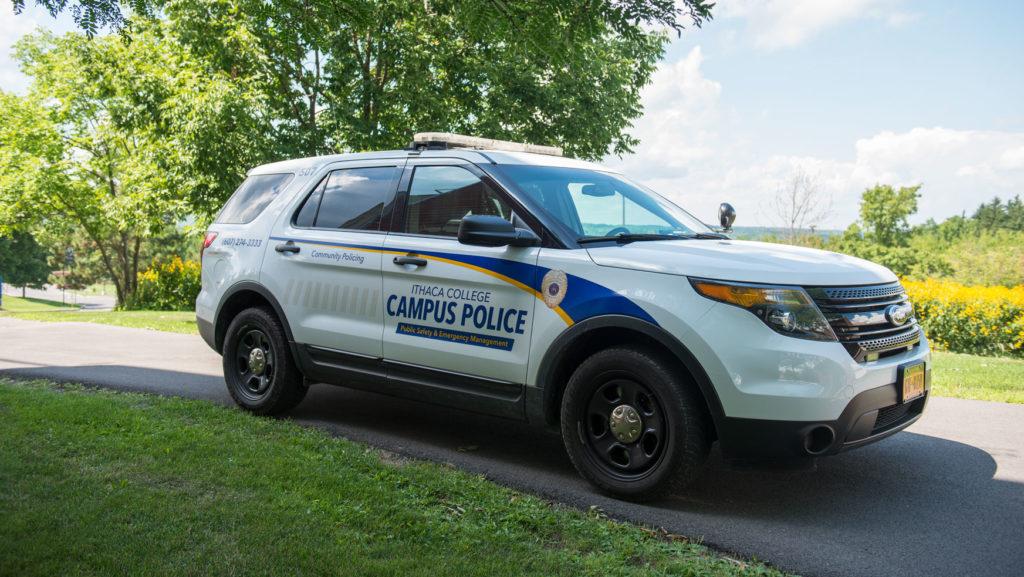The Office of Public Safety and Emergency Management hosted a two-day workshop for law enforcement officials with hopes of strengthening techniques applied to sexual–assault investigations.
The training, which took place Sept. 15 and 16 in Emerson Suites, was made possible through a grant from the International Association of Chiefs of Police (IACP). It was conducted by Tom Tremblay, a former Vermont public safety commissioner who has his own consulting practice for sexual–violence prevention and response. Tremblay is now a national trainer for the IACP’s Law Enforcement Leadership Initiative on Violence Against Women.
Tremblay said he is also a senior associate with Margolis Healy, the third-party external review firm that will conduct a review of Public Safety this fall. He said he will not have a direct involvement with the upcoming review but was aware of it before the training. Public Safety Director Terri Stewart said via email that she did not know of Tremblay’s employment with Margolis Healy and the training was the first time she met him.
The workshop — recommended to colleges and the IACP by the White House Task Force to Protect Students from Sexual Assault, a task force created by President Barack Obama to place emphasis on sexual–assault awareness on college campuses — focused on how the brain reacts to trauma, specifically sexual assault. Officials were taught how trauma can impact the recollection, disclosure and specificity of details provided to emergency personnel, Tremblay said.
“What the research has told us is that what happens to the brain and body in a traumatic event is that the details and sequence of events are difficult to recover for victims,” Tremblay said.
The training also coached officials on how to interview victims of trauma. Stewart said the interviewing techniques that were taught in the training focused on the victim, whereas the techniques officials were trained to use in the police academy focus more on the process and sequence of events. Stewart said the training emphasized empathy and making the victim comfortable.
Approximately 60 members of the Ithaca College campus community, including members from the Office of Residential Life, Office of Judicial Affairs, Division of Human and Legal Resources, and the office of Title IX. Stewart said local, regional and municipal police attended along with staff from the Cayuga Medical Center.
Title IX Coordinator Tiffani Ziemann also said she attended the training and emphasized how crucial training like this is on a college campus.
“I think continuing to do training like this really develops the skills for our Public Safety officials. … I think that can continue to be a really important change that we’re making on campus,” Ziemann said.








